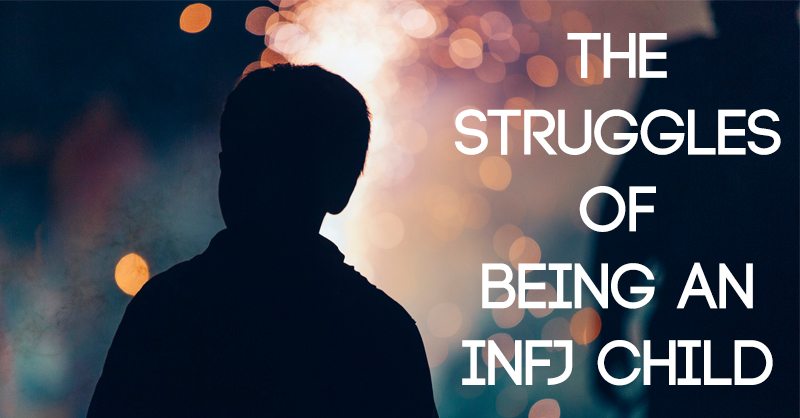The Emotional World of the Enneagram 1
Have you ever felt like you had to be perfect to earn love or acceptance? Ones are often the people others count on to fix the mess, stand up for what’s right, or make sure everything runs smoothly. From the outside, they seem unshakable—calm, competent, and in control. But when I get to know them on a deeper level, I often discover that there’s more emotion underneath.
Ones walk a tightrope between their desire to make things better and an almost impossible standard of perfection they feel they must meet. They’re constantly pulled between their drive to do good and a nagging inner voice that says, “It’s not enough. You’re not enough.”

Sometimes this can lead Ones into scary places. Some Ones repress so much of their instinctual desires and longings that they become chronically stressed, irritable, and unhappy. At times, this can even mean that they erupt in a storm of bad behavior, giving into all their impulses in a weak moment and regretting it later.
If you’re a One reading this, I see you. And if you’re not, I hope this helps you better understand and support the Ones in your life. Because I can assure you, Ones need support (even if they never ask for help). Let’s unpack what it means to live in the emotional world of a One—what’s beneath their striving, where they get stuck, and how they can find peace.
Not sure what your Enneagram type is? You can find out by taking our questionnaire.
How Ones Experience Emotions
When I talk to the Ones in my life, they often tell me they don’t “do” emotions the way other people do. One client once said, “If I have time to feel something, I have time to fix it.” They’re not emotionless—not by a long shot. It’s more that feelings feel… inconvenient. Messy. Distracting.
If you feel like the entire world is resting on your shoulders at all times it’s pretty hard to make time for rest or leisure or emotional processing.
I’ve seen Ones redirect frustration into scrubbing a kitchen until it sparkles or spend hours perfecting a report to avoid sitting with sadness. Their way of dealing with emotions often involves pushing them aside to “get things done.” That’s why they often feel emotions in their bodies before they recognize them mentally: clenched jaws, stiff shoulders, or an uneasy stomach that won’t settle.
I ran a survey of over 61,000 individuals recently and in it I asked each Enneagram type which emotions they felt with the most frequency. The three emotions Ones say they feel most often? Anxiety, optimism, and sadness. I’ve heard Ones describe their anxiety as a constant hum in the background—a sense that something might go wrong if they don’t stay on top of things. But they also carry a quiet optimism, a belief that improvement is always possible if they just work a little harder. Sadness often sneaks in when they realize they can’t fix everything, especially the brokenness they see in themselves or the world.
Emotional Challenges
Critiicsm tends to be tough for Ones. Let me rephrase that, criticism from others tends to be rough for Ones. Ones experience criticism from childhood onward, but it’s typically self-inflicted. They are constantly facing an “Inner Judge” who points out their faults or the ways they could have “tried harder.”
A close family member who’s a One once told me, “I’ve got to satisfy my inner drill-sergeant.” When someone else criticizes them, it feels like piling on top of an already unbearable load.
If you’ve ever wondered why Ones can get snappy or defensive when they’re critiqued, keep in mind that, to them, it feels like they’re already using 110% of their energy trying to satisfy their own inner critic. Someone else offering critique feels like dogpiling them when they’re already worn down.
Sharing their feelings is another hurdle. In my survey, only 28% of Ones said they found it easy to share their emotions with a loved one. I remember one of my clients—a One—telling me that vulnerability felt like “showing someone all the cracks in my foundation.” Instead, they prefer to process their emotions alone. But this can create its own problems. Sharing your problems helps build connections and relationships. It reminds us all that we’re not alone and that other people genuinely care about us. Think of Riley in Inside Out; the minute she really shared her true feelings with her family, things got better.
Ones need to express their feelings and vulnerabilities, but at an average to unhealthy level it feels impossible. It feels like failing.
That loneliness can lead to resentment, even if they don’t always express it outright.
And then there’s the anger. Ones feel it, even if they don’t want to admit it. They see injustice, disorder, and laziness everywhere, and it drives them up the wall. But because anger feels “bad,” they push it down. Over time, it turns into resentment—a kind of low-grade frustration that leaks out in the form of passive-aggressive remarks or an overly critical tone. I’ve seen this create tension in relationships, with friends or family feeling judged while the One feels misunderstood and unsupported.
The Desire to Be “Good”
Every One I’ve known has had a deep, unshakable desire to be “good.” I mean, I think EVERYONE wants to be good (even bad guys most of the time). It’s just a matter of what priority this has in your life. For Ones, being “good” is always on their mind. It’s the background process behind everything.
Whether it’s sticking to their moral code, working tirelessly to improve their environment, or taking on responsibilities others shy away from, Ones are driven by the need to feel righteous and worthy.
One of my clients, a teacher, told me how she’d stay late after school every day, organizing the classroom and planning lessons. She didn’t want to let others down, but even moreso, she didn’t want to let herself down. The hard part was that when her coworkers didn’t show the same level of commitment, she felt like she was carrying the weight of the entire school. She felt like they couldn’t possibly care about her if they weren’t helping with the load as much as she was.
This constant striving creates a unique blend of anxiety and purpose. Survey results showed that 54% of Ones often feel anxious, but 86% also consider themselves positive people (per my survey). That positivity comes from their belief in change. They see the world not as it is, but as it could be—cleaner, kinder, more just. This belief inspires them to push forward, even when they feel drained.
Strengths of the One’s Emotional World
Despite the challenges, Ones have an incredible ability to stay calm under pressure. Seventy-six percent of the Ones I surveyed said they find it easy to keep their cool when things get tough. They’re used to doing hard work and they’re not ones to shy away from hardship. They’ll set their emotions aside and focus on what needs to be done, especially if it benefits the greater good.
That said, this strength can also backfire. One relative of mine—a textbook One—once worked herself to the point of exhaustion organizing a charity event. She refused to ask for help, convinced that no one else would do it “right.” By the time the event was over, she was so burned out she couldn’t enjoy the impact of her hard work.
I think one of the greatest strengths of Enneagram Ones is their drive to improve the world. Sure, a lot of people give lip service to improving the world. Maybe they’ll donate $20 to charity once in a while. But Ones actually put the elbow grease (is that the correct term?) into their work. They want to “walk the talk” and not just say nice things about making a change. They’re not just speaking out against injustice, they’re rolling up their sleeves and doing something about it. From helping out at homeless shelters to educating people about the environment to volunteering their time or even being foster parents, I’ve seen Ones literally change the world in their communities. I can’t praise them enough for this. Ones are truly an essential type in our world.
Common Coping Patterns
If Ones had a motto, it might be, “Don’t just sit there—fix it.” They cope with stress by throwing themselves into action, whether it’s cleaning, organizing, or tackling a new project. I’ve seen Ones take on Herculean workloads, convinced that if they can just cross off every item on their to-do list, the world (and their emotions) will feel manageable again.
But this approach has a downside. By focusing on doing, Ones may ignore their exhaustion, pushing themselves past their limits to prove their worth. And while this strategy might keep them functional in the short term, it often leads to burnout and resentment in the long run.
At the very worst end of the spectrum, Ones can become so rigid, so restrained, so resentful that they have explosive moments of giving into their impulses and feelings that can totally decimate their relationships. As an example, I know a One who acts perfect 98% of the time. But 2% of the time they are truly terrifying, giving into all the repressed anger they’re trying to hide the other 98% of the time. They’re explosive, blaming, judgmental, and withering in their personal attacks against people.
The Role of the Inner Critic
The Inner Critic is like an unwelcome roommate for Ones—always there, always nagging, and never satisfied. It tells them they’re not good enough, not productive enough, not moral enough. It’s exhausting. I’ve seen this Critic play out in subtle ways, like when a One apologizes for the smallest mistakes or feels the need to justify why they took a five-minute break.
Many times Ones project this inner critic onto others, assuming that others are thinking bad thoughts about them when they aren’t. They may become increasingly defensive against perceived judgment that was never there to begin with.
Learning to differentiate the Inner Critic from their true selves is one of the most important (and difficult) steps for a One’s growth. I once encouraged a client to write down the critical thoughts that ran through their mind in a day. By the end of the exercise, they were shocked at how harsh and relentless those thoughts were. “I’d never talk to anyone else this way,” they said. That moment of realization was the first step toward loosening the grip of the Critic.
Cultivating Serenity and Acceptance
“A person who makes few mistakes makes little progress.” – Bryant McGill
If you’re a One, let me start by saying this: You don’t have to be perfect to be worthy. I know that might sound cliché, but I’ve seen firsthand how transformative it can be when Ones begin to let this truth sink in. The hardest part is quieting the voice of your Inner Critic, which insists that mistakes define your worth.
And to be honest, it’s not always good to try to repress the Inner Critic. Repressing is something you already do enough of. You just have to learn which part of you is “critic” and which part is the real you.
Growth for a One often involves embracing the unexpected, the imperfect, and even the downright messy. It’s about laughing more, letting loose now and then, and taking a break from fixing the world to actually enjoy it. A One client of mine started setting aside one evening a week to do something “unproductive.” For her, it was baking cookies without caring if they looked perfect—or even turned out edible. Over time, those evenings became her favorite part of the week.
Acceptance doesn’t mean lowering your standards; it means letting go of the idea that you have to meet them all the time. You can still care deeply about your values and goals, but you can also recognize that life isn’t a checklist—it’s a work in progress.
Questions for Reflection
- What would it feel like to live without your Inner Critic’s constant commentary?
- When was the last time you did something purely for fun?
- How can you remind yourself that mistakes are part of being human, not evidence of failure?
Practical Exercises for Growth
- Journaling Prompts:
- Write down one thing you love about yourself every day for a week.
- Reflect on a recent mistake and list three positive things you learned from it.
- Body Awareness Practice:
- Spend five minutes scanning your body for tension. Where do you feel tightness? Breathe deeply and intentionally relax those areas.
- Delegation Challenge:
- Identify one responsibility you can delegate to someone else this week. Practice letting go of the need for it to be done “your way.”
Letting Others Help You
A key part of growth for Ones is learning to ask for—and accept—help. You don’t have to do everything on your own. Allowing others to share the load doesn’t make you weak; it makes you human. I’ve seen this firsthand in my own relationships with Ones. When they finally let me help, not only did they feel more supported, but I felt closer to them too.
“Life isn’t meant to be lived perfectly…but merely to be LIVED. Boldly, wildly, beautifully, uncertainly, imperfectly, magically LIVED.” – Mandy Hale
The Gifts of a Healthy One
When Ones step into a place of acceptance and balance, they’re nothing short of inspiring. They become more open-minded, compassionate, and joyful. A healthy One isn’t bogged down by resentment or perfectionism—they’re grounded in their values but flexible enough to roll with life’s ups and downs.
I think about one One I know who shifted from obsessing over her imperfections to embracing her quirks. She still cared about doing the right thing, but she gave herself permission to laugh when things didn’t go according to plan. Watching her grow into this more relaxed, confident version of herself was incredible. It reminded me why I love being an Enneagram coach so much.
Permission to Be Imperfect
To the Ones reading this, let me say it plainly: You’re allowed to mess up. You’re allowed to rest. You’re allowed to just be. The world won’t fall apart if you take a day off, and neither will you.
You’ve got so much to offer the world—your integrity, your dedication, your heart. But you don’t have to do it all alone or get it all right. Lean into the beauty of imperfection. That’s where life really happens.
What’s one small step you can take today to loosen the grip of perfectionism and embrace the present moment? Whatever it is, I’d love to hear about it. Share your thoughts, struggles, or successes in the comments—I’m cheering you on!













